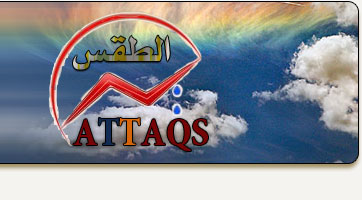FLAC's container format helps arbitrary seekpoints, however it seems many encoders do not add them. In the Ogg multimedia framework, Theora supplies a lossy video layer, while the music-oriented Vorbis codec mostly acts as the audio layer. The human speech compression codec Speex, lossless audio compression codec FLAC, and OggPCM can also act as audio layers.
If, for instance, you have purchased some music in FLAC format, and want to listen to them in iTunes, use XLD or one of many different applications to transform them to Apple Lossless; since each formats are lossless, you'll have exactly the same information within the ensuing information. (Converting from one lossless format to another does not result in any change in high quality.) And you may retain any metadata in the unique information as effectively.
A: Ogg is a multimedia container format, and the native file and stream format for the multimedia codecs. As with all know-how is it an open format free for anybody to use. As with most container codecs it encapsulates raw compressed knowledge and permits the interleaving of audio and video data inside a single convient format. Different examples of container codecs are Quicktimemov, the MPEG program stream, and AVI. Along with encapsulation and interleave of a number of knowledge streams, Ogg supplies packet framing, error detection, and periodic timestamps for looking for, and in a small, bounded percentage bitrate overhead. Ogg is a stream oriented container, meaning it can be written and read in one go, making it a natural match for web streaming and use in processing pipelines. This stream orientation is the main design distinction over other file-based container codecs.
Fashion Jukebox Cloud Player now supports lossless formats FLAC and ALAC on Home windows Telephone 7 and 8, in addition to MP3, AAC, OGC and WMA. Choose a number of OGG information you wish to convert and then click on Open. SoundConverter aims to be easy to use, and very fast. Because of its multithreaded design, it is going to use as many cores as doable to hurry up the conversion. It may possibly additionally extract the audio from movies.
After loading one or more audio files to , you just want to choose an output quality and one of the output formats from beneath. The biggest downside to this program is that have to buy theInfinite Packto transform audio information that are longer than three minutes.
This OGG to ALAC converter can convert OGG (Ogg Vorbis) recordsdata to ALAC (Apple Lossless Audio Codec) audio. You may upload distant audio information by way of their direct URL in addition to files stored in your Google Drive account. The biggest .alac to .ogg drawback with Zamzar is their 50 MB restrict for supply recordsdata. While many audio information are smaller than this, some low compression codecs can exceed this small limit.
So what can you do you probably have files in considered one of these formats and need to add them to iTunes? There are a number of programs that may convert audio information from one format to a different. tmkk's free XLD is my device of alternative, because it manages every audio file format I've ever come throughout, along with some I've never heard of, and even supports cue recordsdata. Stephen Sales space's free Max is another tool that converts many audio file codecs. And if in case you have Roxio's Toast 11 Titanium (and a few earlier versions), you may convert from FLAC or Ogg Vorbis to iTunes-pleasant codecs.
APE: APE is a really highly compressed lossless file, that means you may get essentially the most house financial savings. Its audio quality is similar as FLAC, ALAC, and other lossless information, but it surely isn't suitable with nearly alac to ogg as many gamers. They also work your processor harder to decode, since they're so highly compressed. Usually, I wouldn't suggest utilizing this unless you're very starved for area and have a participant that supports it.
MP3: MPEG Audio Layer III , or MP3 for short, is the most common lossy format round. So much so that it is change into synonymous with downloaded music. MP3 isn't probably the most environment friendly format of all of them, however its undoubtedly probably the most effectively-supported, making it our #1 alternative for lossy audio. You really can't go fallacious with MP3.







